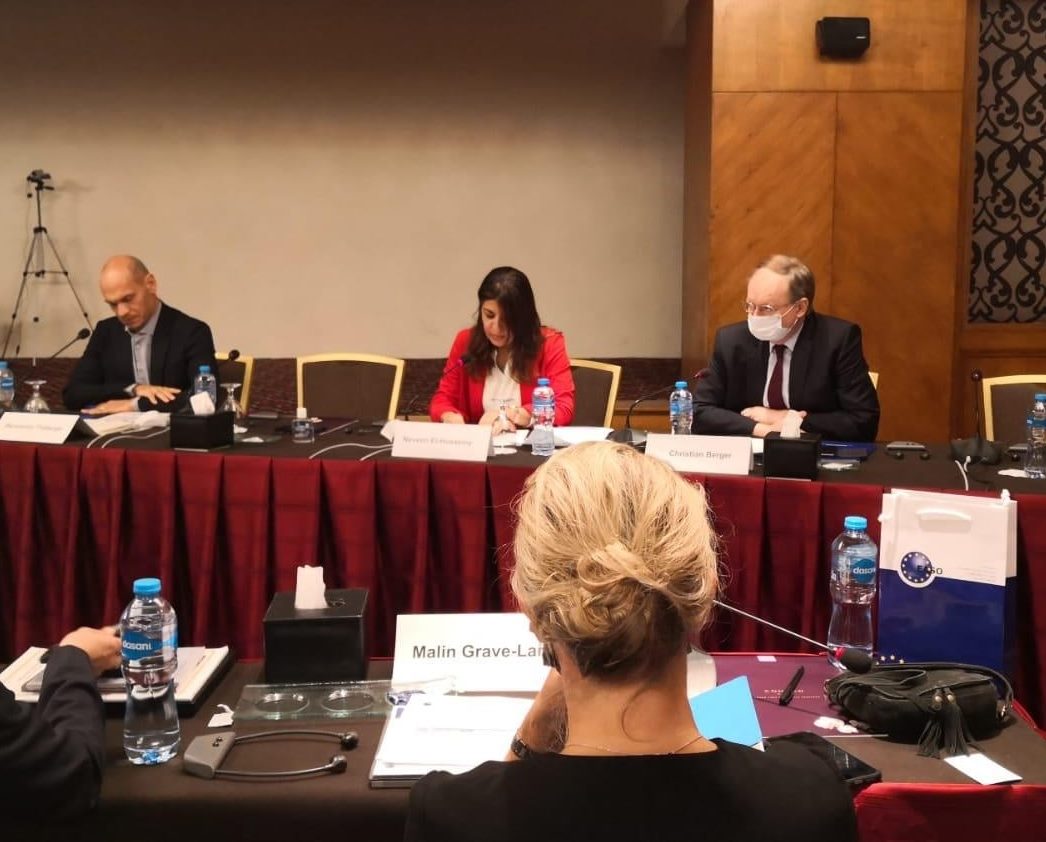EU-funded research facility and solar plant inaugurated in Egypt

A research facility and solar plant co-funded by the European Union was inaugurated in Borg El Arab, Alexandria on Tuesday 27 February. The Multipurpose Applications by Thermodynamic Solar (MATS) project is a research facility and unique multipurpose solar plant, with the goal of identifying and exploiting the appropriate technologies best placed to integrate solar energy into the current energy system and secure a stable supply to consumers.
The inauguration was attended by the Head of the EU Delegation to Egypt Ambassador Ivan Surkoš, along with the Egyptian Ministers of Electricity and Renewable Energy, Dr. Mohamed Shaker, and Higher Education and Scientific Research Dr. Khalid Abdul Ghaffar, as well as the President of the Academy of Scientific Research and Technology Dr. Mahmoud Sakr, and a number of ambassadors of EU Member States.
“We need to overcome a number of challenges both in Europe and Egypt, such as increasingly scarce resources, growing energy needs and climate change. The EU targets to achieve at least 40% emission reductions and 27% energy from renewables by the year 2030. This represents some of the most ambitious targets to achieve a more sustainable energy system,” said Ambassador Surkoš. “There are also fundamental drivers for Egypt to move further towards producing electricity from renewable energy sources. Egypt enjoys an excellent solar potential. Without a doubt, further efforts in research and innovation are crucial to move towards the large scale deployment of renewable energy technologies in the country,” he added.
Thanks to the development of an innovative solar technology, the MATS project aims to demonstrate secure production of electrical power and water supply for a community of at least 1,000 people in Borg El Arab, supporting the social and economic growth of the area. This is done through capturing and storing solar energy, which is also supplemented with a gas fuel to demonstrate the best integration between solar (renewable) and conventional heat sources for a stable heat and power supply. Electrical power production is then combined with a desalination unit using residual heat to produce demineralized water from salty water.
“MATS project is an excellent model of strong and successful collaboration between research institutes, public sector and private sector from Europe and Egypt, with the ultimate goal of the prosperity of our people,” Ambassador Surkoš concluded.
The MATS Consortium includes partners from Italy, Egypt, France, Germany and the UK. The lead partner of the Project is the Italian National Agency for New Technologies, Energy and Sustainable Economic Development (ENEA). The lead Egyptian research partner is the Academy of Scientific Research and Technology (ASRT). The total budget of the project is €22 million, with a contribution in grants from the EU of €12.5 million.
Read more




























 Syria
Syria 





